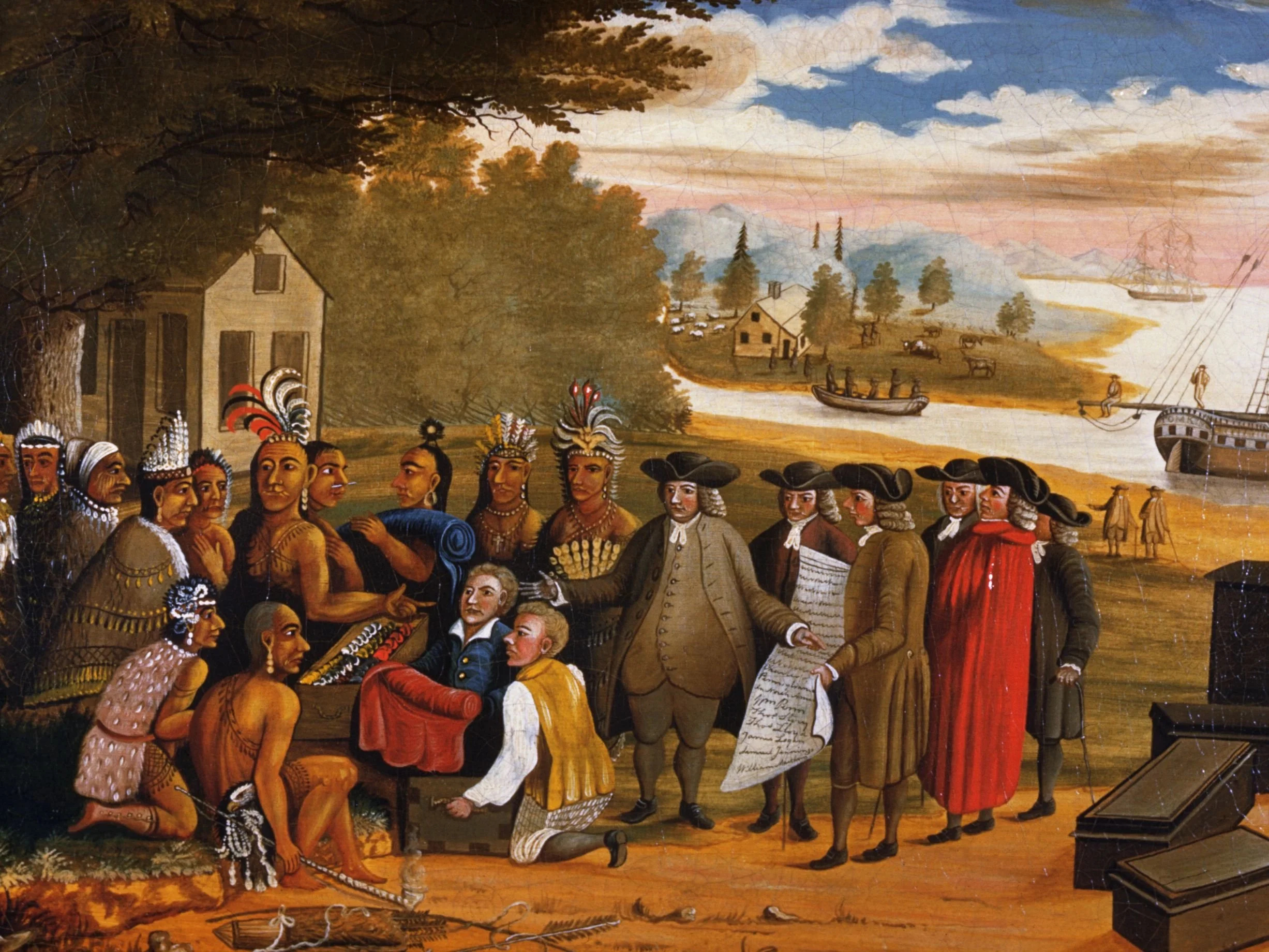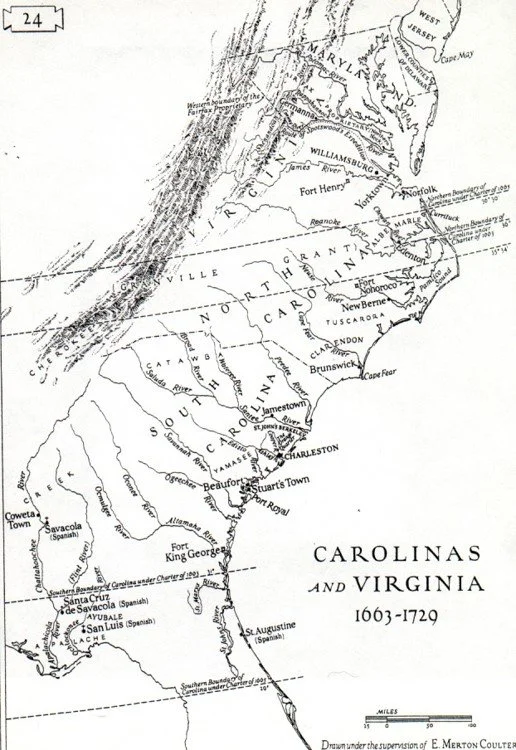By the 1660s, the Dutch were securely in control of the area between the Hudson and Delaware rivers, a picturesque area of verdant forests and fertile soils which nobody really gave two shits about, because more importantly the rivers gave the Dutch direct access to the Iroquois Confederacy, who pretty much completely controlled the interior fur trade at the time. This was the reason why in 1664, in the middle of one of many wars between the English and the Dutch which were all the rage during the mid-seventeenth century, that King Charles II told his brother, James, Duke of York, to just pop over and take shit over. Not really wanting to get his frilly pants dirty, James instead had someone else lead a military expedition on his behalf, but either way, by the end of the year New Netherland had been renamed New York in James’ honor, and the largest port in the area, New Amsterdam, had been renamed New York City, because when you’re a narcissist you might as well go all in.
Now at the time, what was now known as New York was home to some 8,000 Dutch and Swedish settlers, as well as some scattered coastal Algonquian tribes, the largest of whom were the Lenape, who had been decimated by various epidemics and general European and Iroquois assholery in the preceding decades. Not really caring two shits about any of this beyond the fur trade, James appointed a governor to rule on his behalf, but otherwise took a pretty laissez-faire attitude towards the whole thing. As a result, pretty much anyone was welcome to come and settle, or do whatever the hell they wanted, just as long as it didn’t screw up the fur trade, which in turn resulted in the area becoming a bit of a melting pot over the next several decades, because everybody likes free land and nobody getting up in one’s personal business. As long as whomever showed up was willing to swear an oath of loyalty to the English crown, no shits were really given. By 1700, the area was home to some 55,000 people; including English, Dutch, Swedes, French, Finns, Germans, Scots, and Scot-Irish; worshipping as Anglicans, Puritans, Catholics, Quakers, Calvinists, Mennonites, Huguenots, and even Jews. About the only people who didn’t really seem welcome were the native Lenape, who upon noting that things were just getting worse for them the more asshats from Europe arrived, finally said fuck it and moved westward into the Ohio Country, which was conveniently empty thanks to the Iroquois. Another group that was welcome, but not in a good way, were slaves from Africa, whom increasingly found themselves imported to work on the docks in New York City and on the new farms being built along the two rivers.
Now again, all James really cared about was the fur trade, which made a lot of the land he now controlled redundant, but useful in other ways. Both James and his brother, King Charles II, having been involved in the whole English Civil War thing and the following political machinations, owed a lot of people debts, some of whom were perfectly willing to accept large chunks of empty land across the ocean to settle things. The first of these were two friends of James’ whose names are unimportant. What was important was that they were more than happy to accept a big chunk of land along the Atlantic coast which they named New Jersey after a tiny little island in the English Channel. Overall the two new owners took the same laissez-faire approach as James, which along with the fertile soils attracted lots of settlers. However, the lack of access to furs and the fact that it was run by two idiots who thought naming it after a tiny island was a good idea, left it fairly dearth of investment, which was probably why it remained relatively poor compared to everywhere else around it.
The second debt to be paid was in 1681, when King Charles II granted a ridiculously large swath of land to William Penn, whose father had been one of Charles’ biggest supporters and financiers, to get him to shut up already. Penn wanted to setup a colony for his fellow Quakers, a new religious group that had appeared during the English Civil War whose main deal was that one didn’t need ordained clergy as an intermediary to commune with God and that women should play a major role in the spiritualism of the community. For some reason, this didn’t sit well with the dominant Anglican clergy, who did everything in their power to stamp out this new, or as they referred to it, blasphemous way of thinking, which is a nice way of saying they persecuted the shit out of the Quakers, even getting the English parliament to outlaw them. For King Charles II, shipping a bunch of unhappy troublemakers across the Atlantic was a perfect solution, though as a prank he insisted the new colony be called Pennsylvania, which horrified Penn since it would make people think he was some kind of narcissist.
Now unlike most people who were given colonies, William Penn actually set foot on his new lands, arriving with the first Quaker settlers in 1682, founding what would become the city of Philadelphia. Thousands of Quakers soon after followed, as well as numerous other groups fleeing religious or ethnic persecution, because unlike many groups fleeing such conditions, the Quakers actually took said persecution as a good lesson in why one should be more tolerant of other beliefs. Now one might think that such tolerance would cause all sorts of issues, but believe it or not, when the general philosophy of a place is just don’t be an asshat, people adapt amazingly well to not getting up in each other’s business. Penn even took his philosophy a step further, expanding it to include the native groups as well, signing treaties with many of them, the most powerful being the Susquehannock, which kept the peace between the natives and the colonists for some eighty years. About the only group that wasn’t happy with any of this were the colonists in what was to become Delaware, who were mostly plantation and slave owning asshats, which put them a little at odds with the Quakers’ whole don’t be a jerk thing. This conflict was a constant pain in the ass for Penn, who eventually just said fuck it and let them become their own colony.






